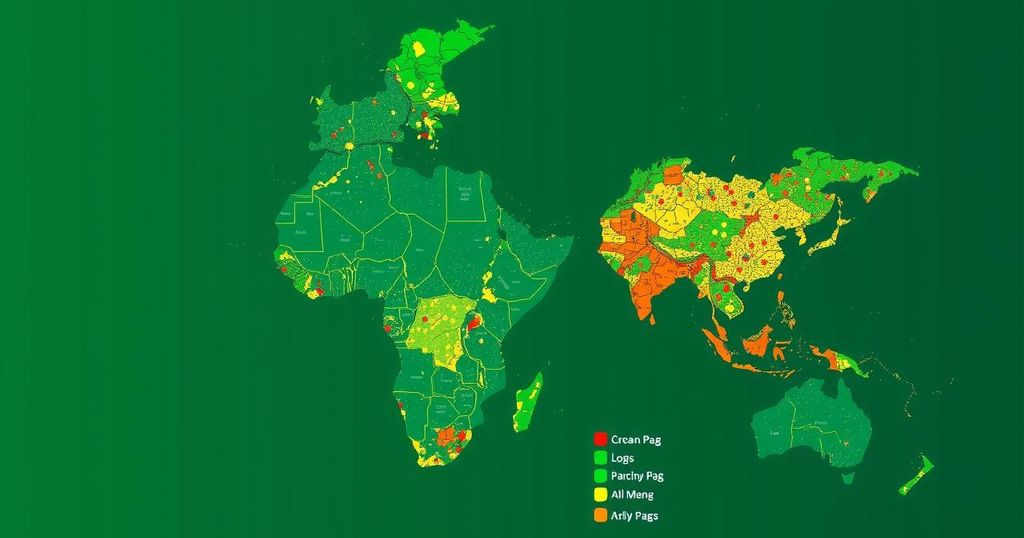The paper examines the effects of climate shocks on firm performance and tax revenue in Zambia. It reveals that extreme weather events significantly impair sales and tax collection across various sectors. Firms respond with job and wage reductions, which further diminishes productivity. This research underscores the need for holistic policies addressing the dual challenges of climate change and economic resilience in developing nations.
The UNU WIDER Working Paper 2024/71 investigates the intersecting issues of climate shocks and economic resilience within low-income countries, particularly focusing on Zambia. The study draws on firm-level data to analyze how extreme weather events, such as excessive rainfall and elevated temperatures, adversely affect firm performance and tax revenue. Results indicate that these climatic challenges lead to significant declines in sales, input purchases, and tax collections, heavily impacting sectors like manufacturing, retail, accommodation, and construction. Furthermore, firms mitigate these challenges by reducing their workforce and wages, which subsequently diminishes productivity.
The findings emphasize the importance of understanding the comprehensive impacts of climate shocks on both the productivity of the formal sector and the fiscal capabilities of governments in developing nations, where tax revenues from services and goods, such as Value-Added Tax (VAT), constitute a substantial portion of government income. It is crucial to consider the dual repercussions of climate change to formulate effective economic policies and improve resilience against future climate-related adversities.
The relationship between climate change and economic performance is a critical area of study, especially in low-income countries that are particularly vulnerable to environmental shifts. Climate shocks not only threaten food security and livelihoods but also hinder economic growth and tax revenue generation. The impact on firm performance is particularly pronounced in sectors that heavily rely on climate-dependent resources. Understanding this interplay is essential for developing effective strategies to enhance resilience and ensure sustainable economic development.
In summary, the research presented in UNU WIDER Working Paper 2024/71 highlights the detrimental effects of climate shocks on firms operating within low-income frameworks, particularly in Zambia. The negative implications for sales, employment, and tax revenues underscore the necessity for integrated policies that bolster both economic resilience and fiscal strategies in response to climate challenges.
Original Source: reliefweb.int






